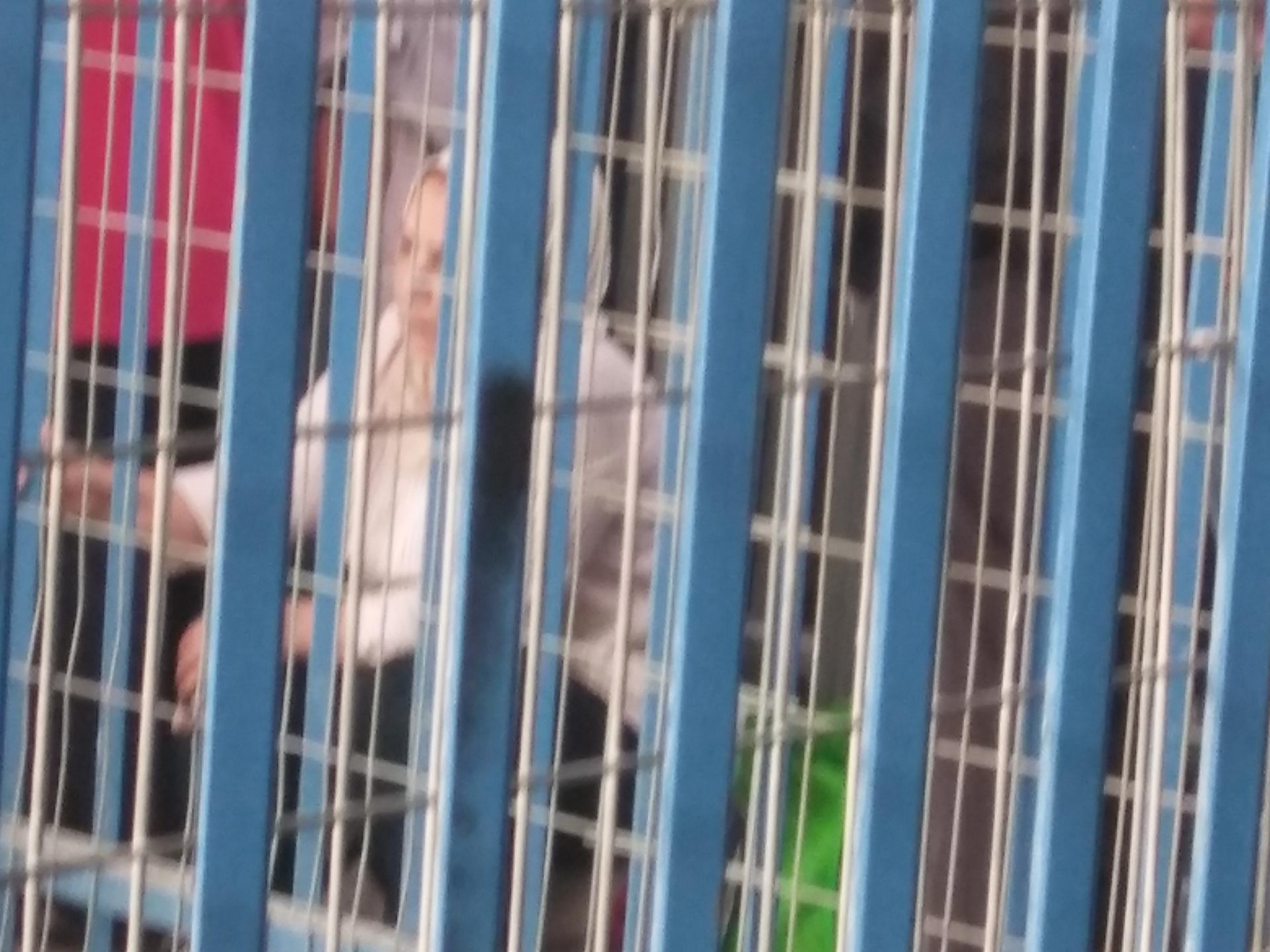Qalandiya
When we arrived at 09:10, the queue almost reached the benches. The place was dirty and the garbage bins were overflowing. Only three internal passages were open, and the queue almost didn’t advance at all. Ten minutes later there was a movement forward in the queue and a great number of people came in. But a few minutes later the queue became long again and reached the benches.
On the right there was a separate queue for women, among which there was a group of women who had arrived from Ramallah. At nine thirty there was a movement forward and the women’s queue became half as long as before. The girl soldier at the DCO which we contacted regarding the load, explained that an exercise was taking place and that when it would terminate within a few moments another passage would be opened. At a quarter to ten another passage was indeed opened and the queues became shorter, but a congestion sprang up in the interior passages.
A young man who accompanied a woman of about fifty who had much difficulty in walking and was carrying two heavy bags turned to us and asked for our help. We called to the soldier to open the humanitarian gate. Only after long minutes he emerged from the shed. In answer to our request to open the gate the soldier said ”if she came here on foot she can also pass through the regular gate”. She returned to the regular queue (see photo) but luckily within a quarter of an hour the soldier finished his shift and was exchanged by a nicer soldier who asked the woman to wait at the humanitarian gate until he called a policeman to open the gate. During all that time the woman wept from pain and was forced to sit on her parcels. We explained to the soldier that the policeman had to take the woman and help her pass. At 10:15 the policeman arrived and opened the gate for the woman and for a blind old man who arrived at the same time. When we left the place the queues were shorter but still advanced slowly.

